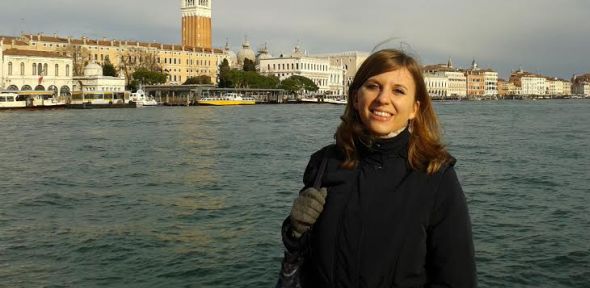
College:
Pembroke
Email:
Supervisor:
About me:
In 2009 I graduated cum laude from the University of Ferrara with a bachelor’s degree in Biological Sciences, with an experimental thesis in Population Genetics (‘Kinship and Reproductive Fitness: A Comparison between the Populations of Iceland and Cilento’). After this, however, I changed my career plans: in 2012 I attained a second bachelor’s degree cum laude in Modern and Classical Languages and Literature from the University of Ferrara (with one year spent abroad at the University of Exeter on an exchange programme). I wrote a final dissertation in Germanic Philology, entitled ‘Anglo-Saxon Elegiac Poetry: Introduction, Translation and Linguistic Analysis of The Wife’s Lament’. Before coming to Cambridge on a Keith Sykes studentship, I graduated with a Distinction from my master’s degree (MSt) in General Linguistics and Comparative Philology at the University of Oxford (Balliol College) in 2014, specialising in particular in psycholinguistics and historical linguistics.
My research:
My project focuses on the role played by linguistic prestige in early modern Italy, as well as its interaction with social structure, against the background both of the history of linguistic ideas at the time and in light of modern theories of language change. My work is interdisciplinary in nature and brings together history of linguistic thought and historical sociolinguistics, drawing on a variety of primary sources (literary, historical, metalinguistic). I am interested in using an approach that allows me to investigate the history of the Italian language, and the debates of the Questione della lingua, ‘from below’. One question I intend to examine is how the perceived status of Latin and of fourteenth-century Tuscan changed across the social spectrum, and in what ways it was acted upon (and/or resisted to) by the middle- and lower-classes. A related issue is to what extent the literary language became a new ‘Latin’, and in which ways the perception of these two prestige languages differed. I am also planning to research how overt and covert prestige interacted, and what role they played in the spread (or lack thereof) of Tuscanisation in writing and speech, aiming to assess whether this, in turn, can shed light on the power of prescriptivism.
Other activities:
I am currently a member of the Cambridge Group for Endangered Languages and Cultures (CELC).


